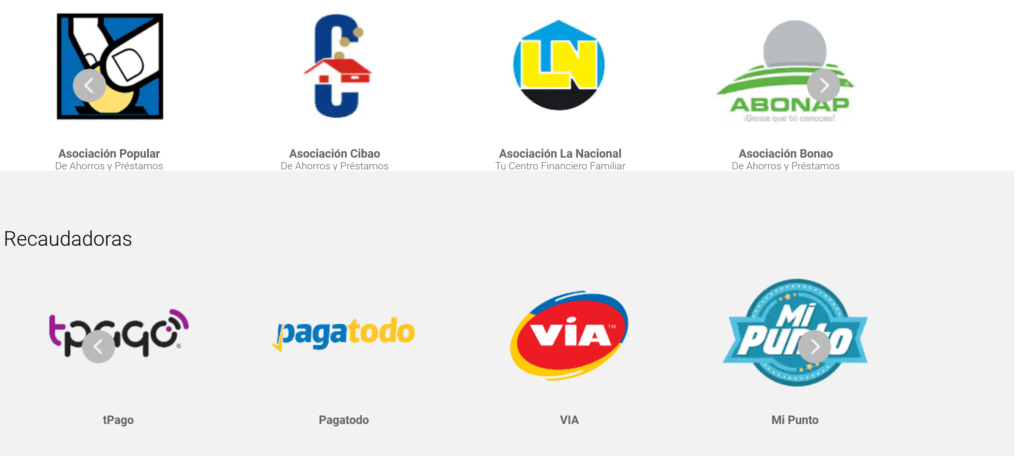
Telecommunication companies in Dominican Republic
The telecommunications industry in the Dominican Republic is vital to the country’s economy and social infrastructure, providing essential communication services and connectivity to millions of people. Over recent decades, the industry has experienced significant growth and modernization, driven by high demand for mobile and internet services, increased competition, and government policies encouraging technological advancement. The leading telecommunication companies in the Dominican Republic are Claro, Altice Dominicana, and Viva, each offering a variety of services including mobile, internet, cable, and digital solutions to both individuals and businesses.
1. Claro Dominicana
Claro Dominicana, a subsidiary of the Mexican telecommunications giant América Móvil, is the largest telecommunications provider in the Dominican Republic. It is known for its wide range of services, including mobile, broadband internet, cable television, and fixed-line telephony. Claro’s mobile network operates on 4G LTE technology, providing fast and reliable service nationwide. As a market leader, Claro has invested heavily in infrastructure, particularly in expanding fiber-optic networks to enhance connectivity and support higher data speeds. The company’s commitment to technology innovation is also seen in its ongoing development of 5G networks, aiming to make the Dominican Republic one of the first countries in the region with widespread 5G access.
Claro is known for offering high-quality services to both individuals and corporate clients, with packages tailored to different market segments. Its Claro Max and Claro Internet packages, for instance, offer flexible data and internet options to meet varying user needs. Additionally, Claro’s collaboration with global tech companies allows it to provide state-of-the-art equipment and solutions, making it a trusted choice for customers seeking high-speed connectivity and modern telecommunications services.
2. Altice Dominicana
Altice Dominicana, part of the multinational Altice Group headquartered in the Netherlands, is another major player in the Dominican telecommunications sector. Altice entered the market in 2014 after acquiring Orange Dominicana and Tricom, merging these entities to form a strong and competitive telecommunications provider. Today, Altice offers a full suite of telecommunications services, including mobile, fixed internet, cable TV, and digital services. The company operates a 4G LTE network and is actively investing in infrastructure to transition toward 5G capabilities.
Altice’s internet services are widely available, including fiber-optic connectivity in urban and suburban areas. The company also offers “Altice Hogar,” a service bundle combining high-speed internet, television, and telephone services, providing affordable and comprehensive packages for households. Altice’s focus on customer satisfaction and quality of service has made it a popular choice for both personal and business communications, providing flexible plans that are customized to meet different usage needs.
3. Viva
Viva is a Dominican-owned telecommunications company with a strong local presence and commitment to the domestic market. Unlike Claro and Altice, which are part of multinational corporations, Viva operates primarily within the Dominican Republic, focusing on competitive pricing and accessibility. Viva’s service offerings include mobile telephony and broadband internet, and it operates a 4G LTE network for mobile services. Though smaller in market share compared to Claro and Altice, Viva’s local knowledge and focus on affordability have helped it secure a loyal customer base, particularly among those seeking cost-effective mobile and internet solutions.
Viva emphasizes its role as a local company and positions itself as a brand that understands and caters to Dominican needs. It offers prepaid and postpaid mobile plans and has recently invested in expanding its network coverage, focusing on reaching more rural and underserved areas. This commitment to nationwide coverage has allowed Viva to be a competitive alternative for customers looking for quality services at lower rates.
Challenges and Future Outlook
While the Dominican Republic’s telecommunications sector has made impressive strides, challenges remain. Network coverage in rural areas, affordability, and digital literacy are ongoing issues. Moreover, the high costs associated with upgrading to new technologies, such as 5G, place pressure on companies to balance investment with pricing for consumers.
The government, through the Instituto Dominicano de las Telecomunicaciones (INDOTEL), continues to regulate the industry and encourage fair competition, infrastructure expansion, and digital inclusion. Efforts to promote e-government initiatives, digital literacy programs, and incentives for foreign investment also support growth in the telecommunications sector.
As technology continues to evolve, the Dominican Republic’s telecommunications market is poised for further growth, with companies like Claro, Altice, and Viva leading the way in innovation and connectivity solutions.




Leave a Reply